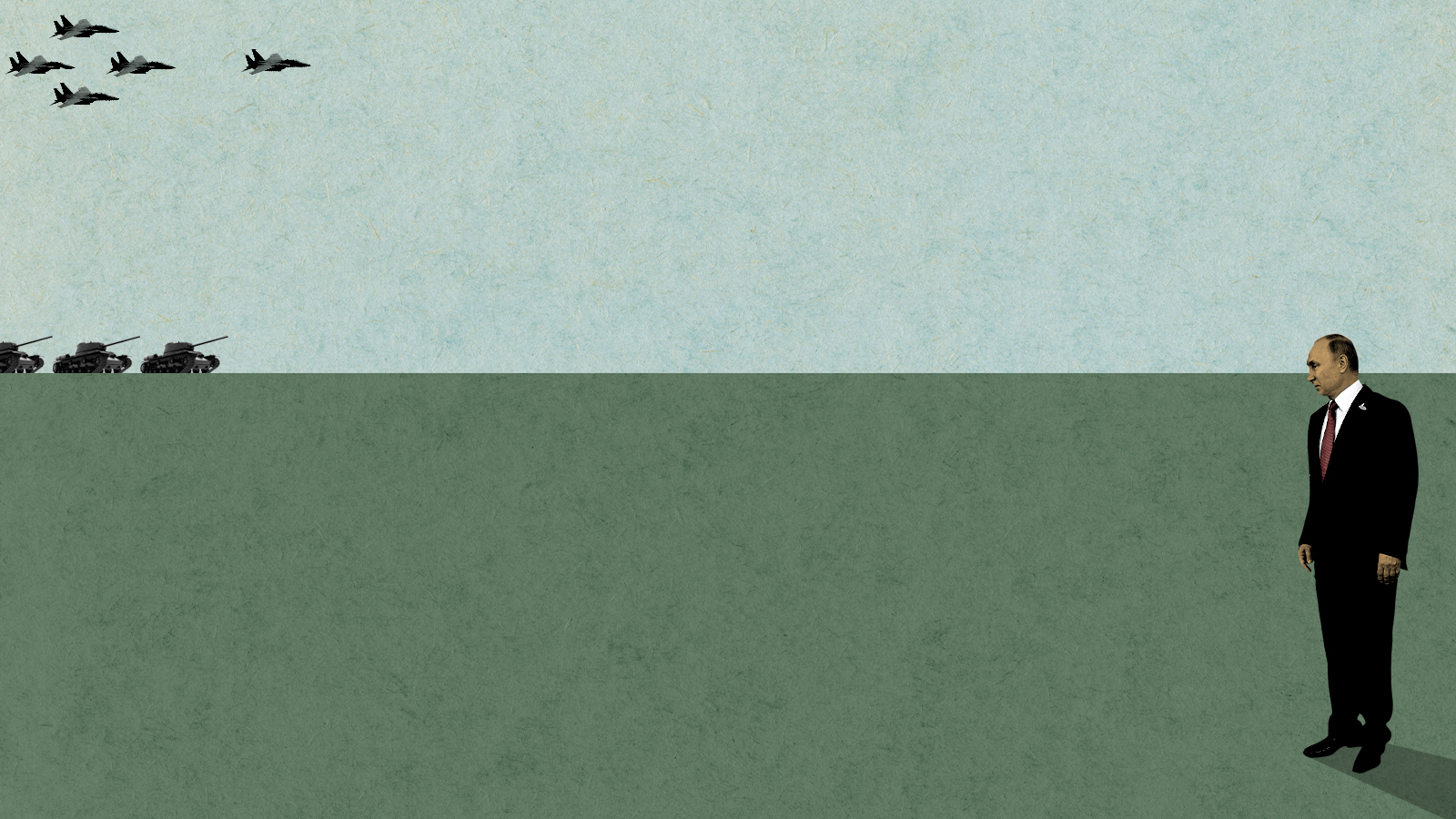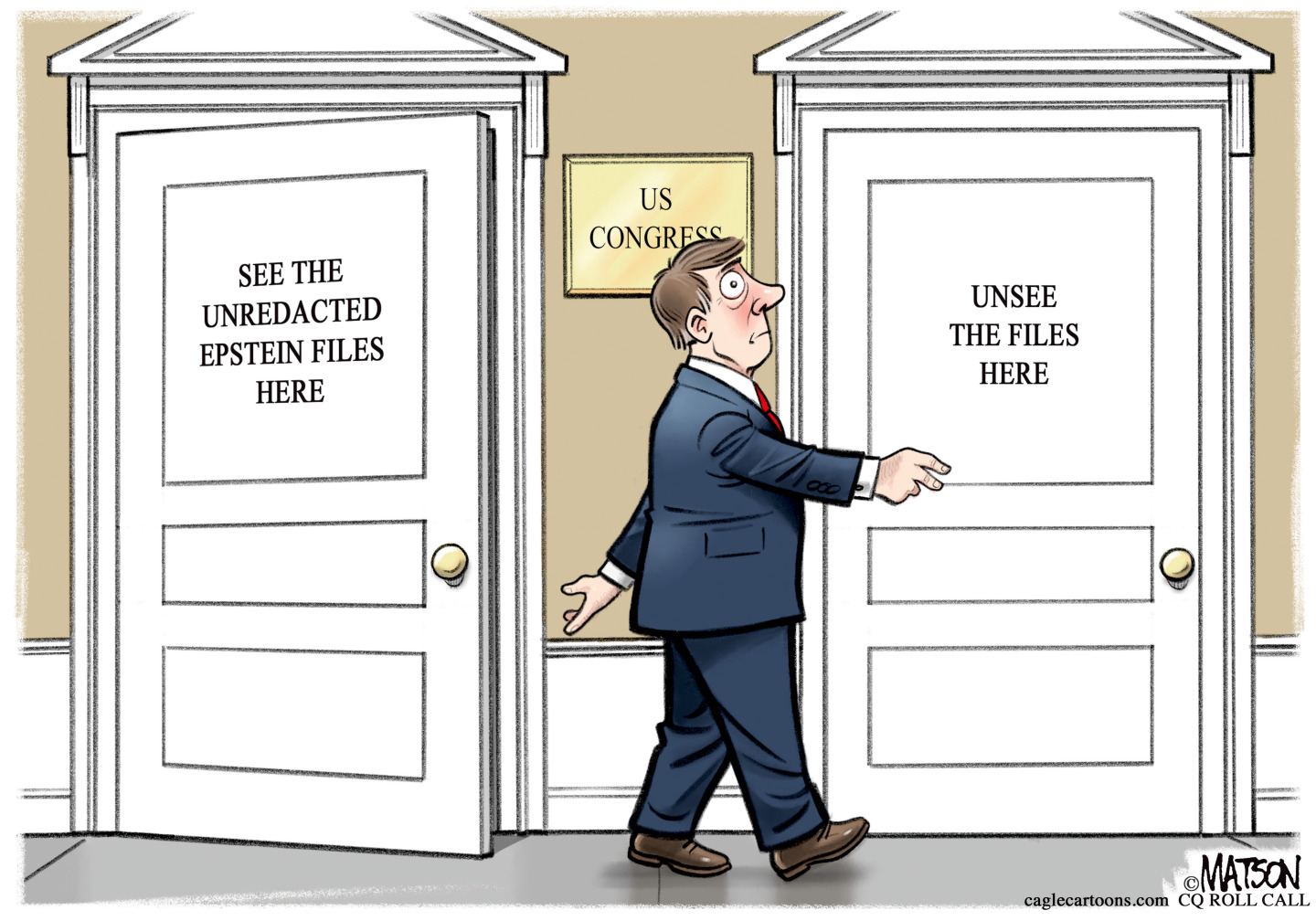NATO's not ready for World War III
Forget the tactical nuke gap. The West's readiness gap is a far bigger deal.


A free daily email with the biggest news stories of the day – and the best features from TheWeek.com
You are now subscribed
Your newsletter sign-up was successful
War is creeping closer to NATO's borders. On Sunday, a Ukrainian base just 11 miles from Poland was struck by Russian rockets. It seems like a warning. If one of those missiles had traveled just a few seconds farther west, NATO — and therefore the United States — and Russia could be on the verge of war.
While we can hope that cooler heads would prevail in case of such an accident or "accident," that's by no means guaranteed. So, if the occasion arose, could NATO pull the trigger on a full-scale war against Russia right this moment?
The short answer is "no," and it's time for both armchair military strategists and lawmakers calling for escalation to realize it.
The Week
Escape your echo chamber. Get the facts behind the news, plus analysis from multiple perspectives.

Sign up for The Week's Free Newsletters
From our morning news briefing to a weekly Good News Newsletter, get the best of The Week delivered directly to your inbox.
From our morning news briefing to a weekly Good News Newsletter, get the best of The Week delivered directly to your inbox.
"We're in a reassurance posture, for our allies. We're showing we're in the game and our commitment is still strong," David Shlapak of the Rand Corporation, told The Week in a recent interview. "We're not in a deterrence posture. We're not in a credible warfighting posture."
Ukrainian President Volodymyr Zelensky has called for a no-fly zone (NFZ) many times, and there are plenty of people in the foreign policy establishment and even Congress who want to give it to him. NATO isn't ready to do that either.
To set up a no-fly zone, the United States would have to move hundreds of planes from bases around the world. It would take weeks to set up and couldn't be done under cloak of darkness. The Russians would know NATO was coming, and if you knew NATO was coming, wouldn't you take countermeasures? Wouldn't you see an act of war on the horizon?
Even if NATO got around Russia's plans, enforcing the NFZ would mean shooting down Russian planes. It would also mean taking out Russian anti-aircraft defenses so NATO warplanes could fly safely, according to experts who spoke with The Week. Those, of course, are on the ground, many of them inside Russian and Belarusian borders. Taking them out would involve NATO in a ground war, and the West is even less ready for that.
A free daily email with the biggest news stories of the day – and the best features from TheWeek.com
There are 74,000 U.S. military personnel in Europe, including the United Kingdom, Italy, France, and Spain, with the largest number (36,000) in Germany. Not all these people are front-line fighters. Many are involved in logistics, maintenance, and other tasks. There is a broader, 40,000-strong NATO response force, too, and some thousands of these troops are in the front-line Baltic nations of Latvia, Estonia, and Lithuania. All told, fewer than 100,000 NATO forces in Europe are even close to being ready to fight.
The Russian force brought together for the Ukraine invasion is double that, about 190,000, and total Russian forces number 900,000.
Could NATO bring a larger force to bear? You bet. But it would take months, according to Shlapak.
For NATO to truly be ready to face down Russia, at least 100,000 more troops would have to be transported to Europe from the United States, Mark Cancian, of the Center for Strategic and International Studies, told The Week. Weapons, equipment, and logistics would all have to be scaled up accordingly.
Once preparations were made on the U.S. side of the Atlantic, ships would have to make the 3,000-mile trip to bases in Europe like Bremerhaven, Germany, and from there they would have to be deployed wherever they were needed most.
All of this would take between two and three months, Cancian and Shlapak agreed. All of it would be visible by satellite and in every other way imaginable. Getting ready for war is loud.
When the coalition of the willing went into Iraq in 2003, it took months to build up forces on Iraq's borders. It was obvious — everyone knew the war was coming — but the foe was so inferior, all they could do was dig in and hope the U.S. would lose interest in fighting.
That is not the case with Russia. As NATO planes approach Ukrainian borders with hostile intent, Russia's forces can meet them, and what are the chances Russia wouldn't strike first? If you were Russian President Vladimir Putin, would you wait for warplanes to attack you before you attacked them?
Similarly, ships crossing the Atlantic have been sunk before, and all parties have spent 80 years since World War II improving their technique. Russia and NATO regularly patrol each other's shores, ready for war — waiting for provocation. It's fair to say hundreds of ships steaming toward Europe for a fight might be considered a provocation.
Of course, the ultimate provocation is declaring war on a sovereign and Western-friendly nation, so perhaps anything NATO and the West do is justified. And there are precedents for arming our enemy's enemy without full-scale war breaking out (for example, the delivery of Stinger missiles to the mujahideen fighting Russia in Afghanistan in the 1980s).
But there have already been a series of provocations by the West, including sending Javelin anti-tank weapons into Ukraine by the hundreds. From the most extreme Russian point of view, this is basically NATO saying, "We are supplying weapons to kill your children." And if, as many observers have pointed out, the Russian military isn't living up to tactical and strategic expectations and can't actually capture the Baltics before the U.S. can blink, Putin still has the option of going nuclear, even if it's just on the tactical scale.
Nobody knows where the world goes from there. But with Putin becoming more bellicose every day, Russian forces ratcheting up brutality against civilians in Ukraine, and with the fighting coming to NATO's very doorstep, there is every chance that we are on the verge of a true world war.
It doesn't look like NATO is ready to fight it.
Jason Fields is a writer, editor, podcaster, and photographer who has worked at Reuters, The New York Times, The Associated Press, and The Washington Post. He hosts the Angry Planet podcast and is the author of the historical mystery "Death in Twilight."
-
 Political cartoons for February 11
Political cartoons for February 11Cartoons Wednesday's political cartoons include erasing Epstein, the national debt, and disease on demand
-
 The Week contest: Lubricant larceny
The Week contest: Lubricant larcenyPuzzles and Quizzes
-
 Can the UK take any more rain?
Can the UK take any more rain?Today’s Big Question An Atlantic jet stream is ‘stuck’ over British skies, leading to ‘biblical’ downpours and more than 40 consecutive days of rain in some areas
-
 What is ‘Arctic Sentry’ and will it deter Russia and China?
What is ‘Arctic Sentry’ and will it deter Russia and China?Today’s Big Question Nato considers joint operation and intelligence sharing in Arctic region, in face of Trump’s threats to seize Greenland for ‘protection’
-
 New START: the final US-Russia nuclear treaty about to expire
New START: the final US-Russia nuclear treaty about to expireThe Explainer The last agreement between Washington and Moscow expires within weeks
-
 What would a UK deployment to Ukraine look like?
What would a UK deployment to Ukraine look like?Today's Big Question Security agreement commits British and French forces in event of ceasefire
-
 Would Europe defend Greenland from US aggression?
Would Europe defend Greenland from US aggression?Today’s Big Question ‘Mildness’ of EU pushback against Trump provocation ‘illustrates the bind Europe finds itself in’
-
 Did Trump just end the US-Europe alliance?
Did Trump just end the US-Europe alliance?Today's Big Question New US national security policy drops ‘grenade’ on Europe and should serve as ‘the mother of all wake-up calls’
-
 Is conscription the answer to Europe’s security woes?
Is conscription the answer to Europe’s security woes?Today's Big Question How best to boost troop numbers to deal with Russian threat is ‘prompting fierce and soul-searching debates’
-
 Trump peace deal: an offer Zelenskyy can’t refuse?
Trump peace deal: an offer Zelenskyy can’t refuse?Today’s Big Question ‘Unpalatable’ US plan may strengthen embattled Ukrainian president at home
-
 Vladimir Putin’s ‘nuclear tsunami’ missile
Vladimir Putin’s ‘nuclear tsunami’ missileThe Explainer Russian president has boasted that there is no way to intercept the new weapon
